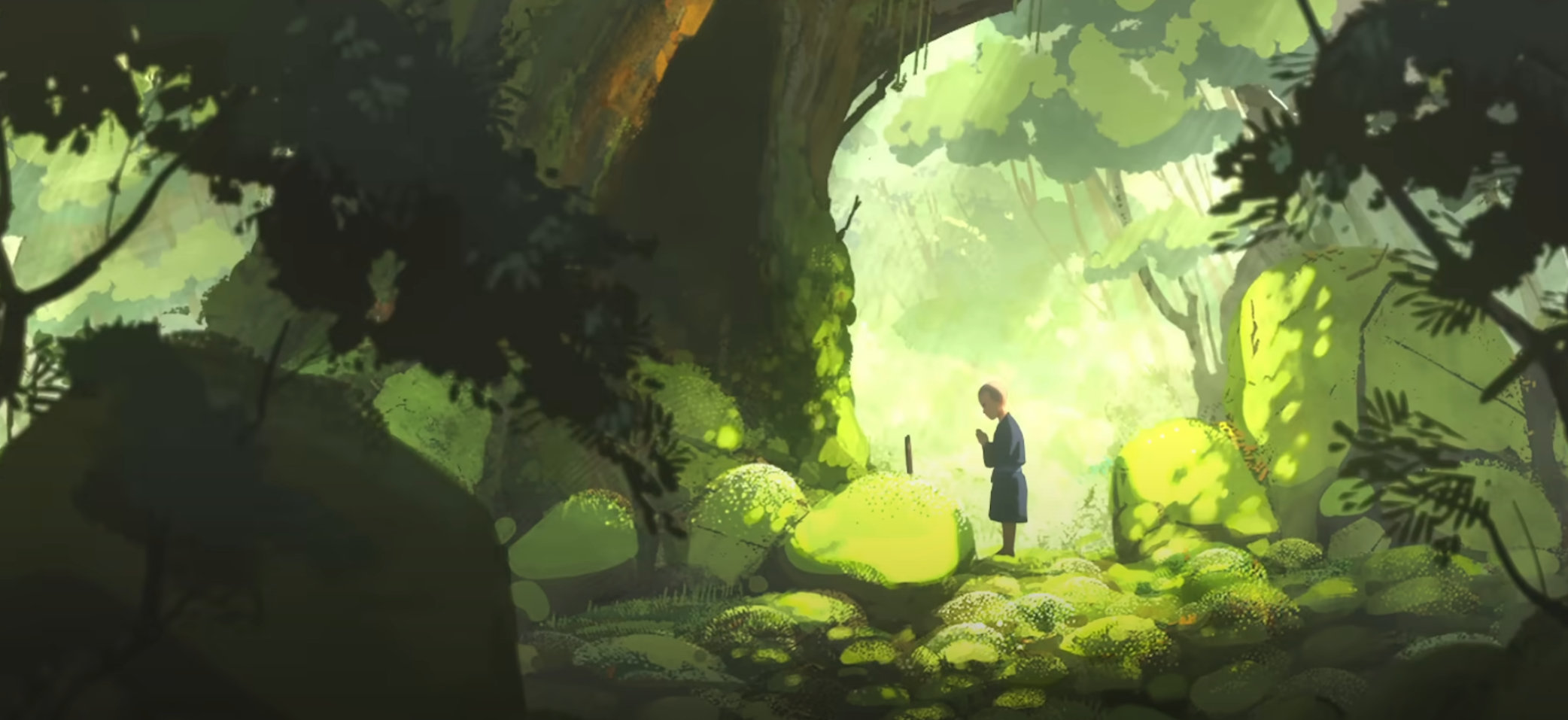As a father and video game blogger, my spare time is pretty limited, so when it comes to blowing hours on a TV show my bar is set very high. Which is why, for a few weeks, I kept seeing a Netflix animation called Blue Eye Samurai getting talked about, and for a few weeks I kept ignoring it because the name alone--yes, I'm a "judge a book by its cover guy", what else am I supposed to superficially judge it on?--made me think it was going to be some corny white saviour-type situation, Tom Cruise's The Last Samurai for an anime generation.
I have proven, once again, to be a huge idiot. After finally starting the show last week on the repeated recommendation of some of the rare people whose opinions on animation I genuinely trust, I could not stop watching it. I sat breathlessly in front of my TV screen when I wrapped the series up on Saturday, and have not stopped thinking about it since.
This show rules. You should watch it immediately.
Allow me to dispel my own misgiving first: this is most definitely not a white saviour story. Blue Eye Samurai is about a wandering swordsman, Mizu, a half-white "blue eyed demon", whose father's identity is a mystery but on a very short list of subjects, as only four white men had been living in Japan at the time of Mizu's conception.
All four of those men, in Japan on secret, nefarious business (this is set during a time when Japan closed its borders to outsiders), are very bad men. And so Mizu, raised as a persecuted outcast and forced to hide their identity to stay alive, is on a quest for revenge. If they don't know which one of these nasty white men is their father, well, they'll just have to kill all four of them.
Obviously, Blue Eye Samurai is a violent show. This is a grisly samurai adventure, with a lot of swordplay, so yes, a lot of people get very fucked up. Heads are sliced in two, arms broken so the bone pokes through, legs are snapped like twigs. People get shanked, set on fire, thrown into pits of spikes, the works.
And it looks amazing while doing all this. Blue Eye Samurai is a visual marvel, its buttery smooth animation and strategically vibrant colour palette looking so good that, were there no story at all, this would still be must-watch TV just to...watch it.
But it's so much more than that. Blue Eye Samurai's first memorable fight scene is everything I described above: it's gorgeous to look at, but also increasingly brutal in design; what begins with some slaps to the chest using practice swords ends with a bunch of guys--not even bad guys, just guys in Mizu's way--getting their bones snapped and eyes blinded:
Around this time we're also introduced to some of the show's main supporting cast, including a seemingly dim-witted sidekick, a wise old teacher and a Gaston-like adversary. As Mizu strolls through that fight scene, cocky and boastful, it feels for a minute like this is going to be one of those shows: a cliched, hollow romp through Japanese history, all style and little substance.
Nope! As the episodes roll on we find that the only interest it has in tropes is setting them up to mercilessly cut them down. With each successive fight scene Mizu gets increasingly beat to hell, and with each passing episode the cast becomes increasingly rounded, flawed and human.
By the end of the series we realise that the fighting isn't the point of the show, it's merely a reflection of everything else being built along the way. Mizu, at the outset a cold, weird loner, spends eight episodes learning that the journey really is the people we meet along the way, because in this case those people--and the friendships formed among them--are the only thing keeping them and their quest for vengeance alive.

And by that end, I was exhausted. This is an epic television series, masterfully written, with a fantastic cast and some of the finest fight scenes to ever appear on the small screen, animated or otherwise. I had hooted, hollered and had my heart broken, all by the one show. Everything about it is good, and everything about it is worth writing about, but I'm stopping here because then we would be here all day.
When a show is this good you don't need me to tell you 117 reasons why it's good, you just need someone--like I did--to say hey, please watch this, I promise you it will change your life.


